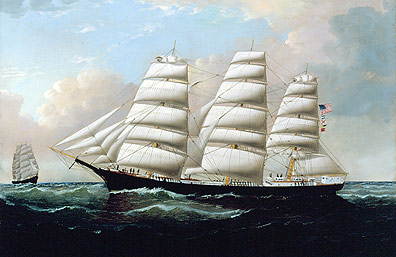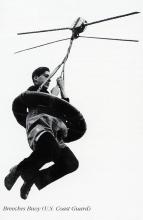Stories of Heroism
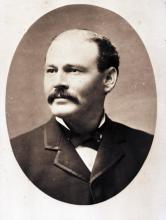 Captain Theodore Persons Colcord(1848 – 1914) went to sea at the age of 16 and became a captain at age 27. He commanded three sailing vessels and three steamships before retiring in 1911.
Captain Theodore Persons Colcord(1848 – 1914) went to sea at the age of 16 and became a captain at age 27. He commanded three sailing vessels and three steamships before retiring in 1911.
In 1889, while in command of the ship A.J. Fuller, he was en route from Liverpool, England, to New York when he came across the burning steamer Santiago, bound from New York to Hull, England. Colcord rescued 59 people from the Santiago, and landed them in New York. The officers and passengers of the S.S. Santiago presented Colcord with a gold chronometer watch, and his wife with a pair of solid gold bracelets.
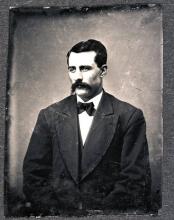 Captain William McGilvery Carver (1851 – 1909) commanded the ship Susan Gilmore from 1878 to 1884, when she was wrecked off the coast of Australia on July 4. Captain Carver swam to shore through the surf, carrying a small rope which he tied to a tree. Using this rope he pulled a larger one to shore, fastening it to a tree and hauling it taut. He then rigged a breeches buoyBreeches Buoy
Captain William McGilvery Carver (1851 – 1909) commanded the ship Susan Gilmore from 1878 to 1884, when she was wrecked off the coast of Australia on July 4. Captain Carver swam to shore through the surf, carrying a small rope which he tied to a tree. Using this rope he pulled a larger one to shore, fastening it to a tree and hauling it taut. He then rigged a breeches buoyBreeches Buoy
A rescue device consisting of a life buoy from which is suspended a canvas sling, similar in form to a pair of breeches, or pants, in which shipwrecked or disabled persons are hauled from a vessel to the shore or to another vessel by means of a rope and pulley between them., hauling it back and forth until everyone on board was saved. Carver then went back and saved all the pets aboard. Captain Carver returned to Searsport after this experience, but subsequently moved to Iowa.
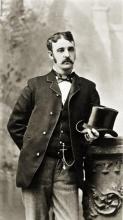 Captain Daniel Smith Goodell, Jr. (1853 – 1912) had a life at sea that included two surprisingly different incidents. In 1876 he jumped overboard in a gale off Cape Horn to rescue one of his crew members who had fallen into the sea. For his courage, he received a medal from the Massachusetts Humane Society.
Captain Daniel Smith Goodell, Jr. (1853 – 1912) had a life at sea that included two surprisingly different incidents. In 1876 he jumped overboard in a gale off Cape Horn to rescue one of his crew members who had fallen into the sea. For his courage, he received a medal from the Massachusetts Humane Society.
In 1890 Captain Goodell was accused of flogging his seamen, pleaded nolo contendereNolo contendere
A legal term. Latin for “no contest”--a defendant's plea that does not admit guilt but subjects him or her to punishment as though a guilty plea had been entered. in Boston’s district court, and was fined $350 by the judge. It was said that his previous act of heroism influenced the judge to reduce the fine.

